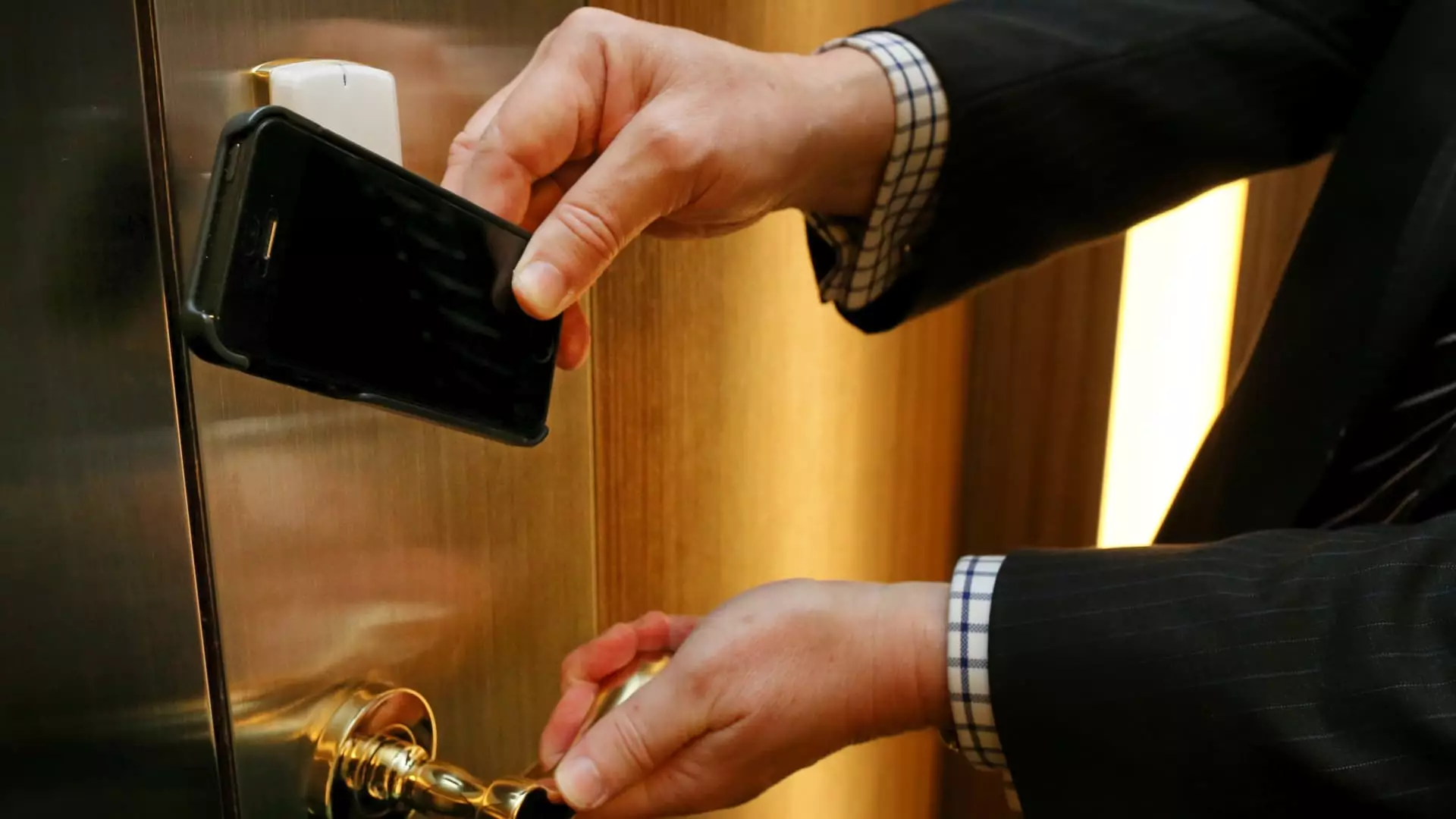In a world where technology is constantly evolving, many hotel chains are embracing the shift towards replacing traditional plastic room keys with digital alternatives. The COVID-19 pandemic has played a significant role in accelerating touchless trends, leading to heightened concerns about the safety and cybersecurity of existing key technologies. Research has uncovered vulnerabilities in plastic hotel keys, prompting the need for a more secure and efficient solution.
The Rise of Apple Wallet and Google Wallet
Major hotel chains in the United States have long maintained digital key capabilities, but the introduction of Apple Wallet and Google Wallet apps has taken this trend to the next level. Guests now have the option to save their room keys to their wallets, enabling them to access their rooms with a simple tap of their smartphones. Hilton Hotels, for example, offers its Honors app, allowing guests to check in and use their room keys via their smartphones.
Despite the convenience and efficiency of digital keys, security experts caution that these systems are not foolproof. Keyless entry systems introduce new threat vectors for hotel security operations to manage. While security control policies like multifactor authentication can mitigate these risks, they may present additional challenges for guests. Some individuals still prefer traditional key cards or may not have devices compatible with digital lock systems.
The Slow Adoption of Digital Options
Data from J.D. Power’s research on hotels indicates that only a small percentage of guests use digital keys during their stays, with the majority still opting for plastic key cards. While keyless entry systems offer enhanced safety features, guests seem to prioritize convenience over security. The slow adoption of digital options by customers highlights the ongoing challenges faced by hotel chains in transitioning to new technologies.
While digital key options offer a promising alternative to traditional key cards, the journey towards widespread adoption remains a complex issue. Hotel franchise owners are gradually updating their door locks to support digital keys, aligning with evolving brand standards. Consumer demand for convenience is a driving force behind the push for digital keys, despite lingering concerns about security vulnerabilities.
The Role of Human Behavior in Key Preferences
Human habits and preferences continue to influence the choice between digital and traditional key options. While digital keys provide a more modern and user-friendly experience, some individuals value the physicality of plastic key cards. The convenience of smartphones as a key replacement underscores the importance of adapting to changing consumer behaviors and expectations.
The Versatility of RFID Technology
The evolution of radio frequency identification (RFID) cards highlights the ongoing improvements in key technology. RFID-enabled plastic keys offer a seamless and customizable experience, catering to individuals seeking a less interactive approach. Despite the growing prevalence of mobile apps for key access, RFID technology remains relevant and adaptable to diverse guest needs.
The Importance of Security in Key Systems
As the hospitality industry navigates the transition to digital key systems, security concerns must remain at the forefront. While digital keys offer certain advantages, the potential for vulnerabilities and breaches underscores the need for robust security measures. Hotel chains must strike a balance between convenience and safety to meet the evolving expectations of guests.
The ongoing debate between digital and traditional key options reflects the broader impact of technology on the hospitality sector. As advancements continue to redefine the guest experience, hotels must adapt to changing preferences and demands. While the allure of digital keys lies in their convenience and efficiency, the enduring appeal of physical key cards underscores the importance of catering to a diverse range of guest preferences.
The evolution of hotel room keys signals a transformative shift in the way guests access their accommodations. While digital options offer a glimpse into the future of key systems, the legacy of traditional key cards remains deeply ingrained in consumer behavior. As hotel chains navigate this dynamic landscape, the key lies in striking a balance between innovation and tradition to meet the evolving needs of guests in an ever-changing industry.

